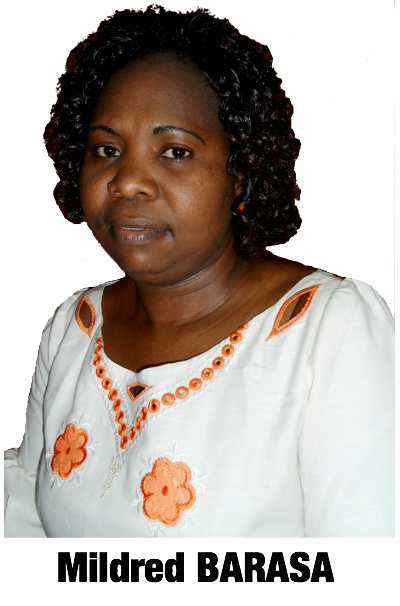Effects of climate change increase women’s working time and worsen their health conditions especially in developing countries and make their living conditions more precarious.
Climate change will affect every person from every region of the world, but not unilaterally. The most marginalized, such as women, children, the elderly, the poor and disabled are the most vulnerable to its impacts.
On a daily basis, climate change affects poor women more severely than men: the scarcity of natural resources such as water and firewood is lengthening the distance to collect them, increasing women’s working time and making their living conditions more unstable. And when a climate disaster occurs, they are more vulnerable because they have been less prepared for such calamities as compared to their male counterparts.
 Speaking at the ongoing COP21 climate change talks in Paris, Ms. Annie Matundu Nbanbi, a gender activist from Democratic Republic of Congo (DRC) avers that overusing fertilizers and pesticides has greatly interfered with the African soils. This according to her has made the top soils loose hence soil erosion takes place frequently.
Speaking at the ongoing COP21 climate change talks in Paris, Ms. Annie Matundu Nbanbi, a gender activist from Democratic Republic of Congo (DRC) avers that overusing fertilizers and pesticides has greatly interfered with the African soils. This according to her has made the top soils loose hence soil erosion takes place frequently.
“The recurrent soil erosion does not only impact negatively on people when they fail to get good harvests, but the chemicals that are deposited in our lakes and rivers cause havoc to the people e.g. water borne diseases that have become very frequent in DRC,” regrets Ms Matundu.
The above predicaments asserts Ms Matundu, have worsened the poverty situation in DRC. Africa and Asia-pacific region faces disproportionate susceptibility because of the continents locations, high rates of poverty, and dependency on agriculture and fisheries for sustenance.
Climate change affects women’s health in numerous ways, which vary from the day to day increased burden of feeding families and caring for the sick, to the extreme threats during disasters such as being unable to swim in floods and drowning.
These are uniquely felt by women as their gendered roles and responsibilities become more difficult, and they often lack the survival skills that their male counterparts have. Whether it is rates of violence against women increasing post disaster situations or food shortages that disproportionately affect rural women, it is clear that women and their sexual and reproductive health and rights (SRHR) needs are being threatened and forgotten in climate change policies.
Ms Matundu recommends that in international meetings such as the climate change conferences among others, women and other traditionally marginalized groups should be well represented in order for them to articulate their issues for them to be well catered for.
 Miss Oumy, the director of Solidarity International from Senegal supports Ms Matundu’s sentiments saying that among the adaptation and mitigation projects that African countries are set to implement, there should be specific women projects geared towards capacity building for them to effectively work on the problem of climate change.
Miss Oumy, the director of Solidarity International from Senegal supports Ms Matundu’s sentiments saying that among the adaptation and mitigation projects that African countries are set to implement, there should be specific women projects geared towards capacity building for them to effectively work on the problem of climate change.
“In Senegal, the impact of climate change continues to wreck havoc and the poverty that has come with it continues to drive our youth out of the country in search for greener pastures. Young men risk their lives by crossing over to Europe as illegal immigrants and in the process, a big number of them lose their lives,” laments Ms Oumy.
She adds that water from the Salom island of Senegal is constantly being pushed to the mainland and in the process what used to be arable land meant for growing crops has been interfered with, by salt deposits.
Miss Oumy is quick to point out that land from the island is fast being washed away by water thus reducing the size of what was once habitable land. This she notes has a big impact on the lives of women since they are left at home by their husbands who leave for towns in search for employment.
In the process, women are left at home with the children, the sick and the elderly people to fend for them and survive in abject poverty.
Despite these obstacles and the discriminations they suffer, women are striving to reduce greenhouse gas emissions and adapt to climate change impacts. They are innovating on all continents by applying conservation agriculture (which reduces the needs for water and fertilizers and captures carbon) by installing adapted irrigation and drinking water reservoirs, and by creating complete waste recycling lines.
And yet their actions, often undertaken locally, are undervalued and too rarely funded. Little known players of this combat, women are barely involved in decisions taken nationally or at international negotiations. Women will be all the more efficient as they become empowered and fully exercise their rights.
Women demand the integration of human rights and gender equality in the Paris agreement, the promotion of women’s contribution and strengthening of their participation at all levels in addressing climate change.
They too demand concrete implementation of these commitments by ensuring that the projects and funding devoted to addressing climate change promote gender equality and women’s empowerment.
That simply means that the adaptation approaches must be country-driven, gender-responsive, participatory and fully transparent.
Another key message women delegates in Paris want taken in to consideration is that participation in decision making under the new agreement should be inclusive and transparent, ensuring all barriers to movement and travel for developing country participants are alleviated and that civil society has access to decision making spaces.
Photos: Midlred Barasa
- The views expressed on this blog are those of the authors alone. They are published as a contribution to the public debate and do not necessarily reflect the views of the Fondation de l’Écologie Politique as an institution.

